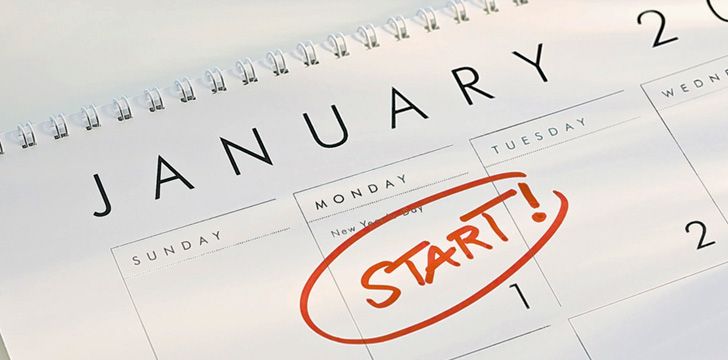For the majority of people, January symbolizes new beginnings and a fresh start. For others, it’s just another ordinary month!
Here we have information on the historical origins of the month being introduced into the calendar back in Roman times.
On top of that, we have a little insight into some notable historical events that happened this month!
Check out the 21 facts about the month of January below.
The name for January comes from the Roman God Janus, who is always depicted with two heads. He uses one head to look back on the year before and the other head to look forward to the New Year!
Oddly enough, couples tend to separate or divorce more so in January than in any other month of the year.
In Pasadena, California, there has been a Rose Parade held every year since 1890. It has since been broadcasted worldwide and is typically viewed in over 100 countries around the globe.
If you were born in January, your birthstone is a garnet!
In leap years, January always starts on the same day as April and July.
London is famous for its extensive subway system, nicknamed “The Tube.” This makes sense because they’re also responsible for opening the first operational underground railway on January 10, 1863.
Some historical names for January include “Wulfmonath,” which came from the Anglo-Saxons because it was the month hungry wolves would come scavenging. King Charlemagne would call it “Wintermanoth,” meaning “winter/cold month.”
Originally, the Roman calendar had only 10 months, and it excluded January and February.
King Numa Pompilius, the second king of Rome, is responsible for adding both January and February to the Roman calendar. He did this so calendars would be equivalent to a lunar year. Even so, it only had 30 days.
Finally, Julius Caesar added the 31st day to the month and completed it to the full month of January that we practice now!
January was a monumental year for Alaska! As of January 3, 1959, Alaska officially became the 49th state of the United States.
Generally, January is the coldest month of the year in the Northern Hemisphere.
The equivalent month of January in terms of temperature in the Southern Hemisphere is July!
Referring back to the Julian and Gregorian calendars, January is the first month of the year and the first of seven months to be 31 days long.
In the United Kingdom, some people practice “Dry January.” This is a movement to encourage people to quit drinking alcohol for the month in order to encourage public health.
January has two zodiac signs – Capricorn, which is until January 19, and Aquarius, which is for the rest of the month.
The Dianthus caryophullus is the primary birth flower of January – more commonly known as the carnation! January’s other birth flower is the humble snowdrop.
One of the most influential events in the U.S. happened in January – on January 1, 1892, Ellis Island opened, allowing for the immigration of over 20 million people!
The first Penal Colony in Australia was established in January 1788 by the British in order to relieve overcrowded English prisons.
Are you a fan of the stars? Celebrities that is! Then you’ll be interested to know that the first-ever Emmy Awards were held on January 25, 1949.
January brought the end of the monarchy in Hawaii when Queen Liliuokalani was forced to abdicate on the 24th of the month.

So, January may well be the month for a new start, dreaming big, and achieving new goals, but it is also a month with a rich past.
As you step into a new year, remember to appreciate the incredible events that have occurred during January.
















